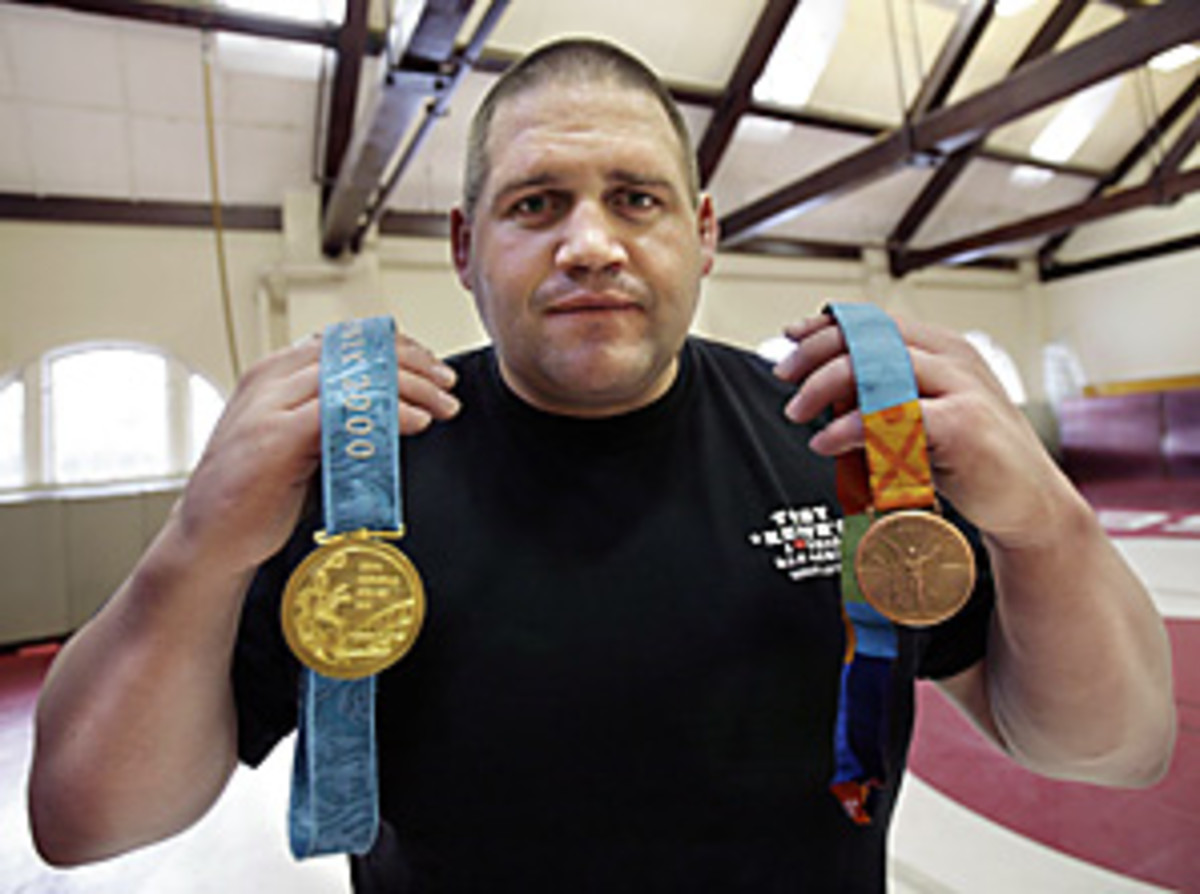
Catching up with Rulon Gardner
No one expected Rulon Gardner to win a gold medal at the 2000 Olympics -- himself included.
Not only was the quiet, gentle-faced farm boy from Wyoming vying for the top position in Greco-Roman wrestling, he had to take down the sport's unbeatable man, Russia's Alexsandr Karelin, who hadn't lost in international competition for the previous 13 years.
Karelin's jaw-dropping record -- he hadn't lost a single point in six years and was a three-time defending Olympic champion -- made Olympic gold seem impossible. But Gardner had drilled obsessively. He wrestled full-out, no-break matches for hours on end at the U.S. Olympic Training Center in Colorado Springs, Colo., and lifted weights until his body became numb. His 1-0 win in overtime of the 130-kilogram (286-pound) final is considered one of the greatest upsets in Olympic history.
"I didn't want to have to look back as an old man and say, 'You know what, you just didn't do everything,'" Gardner says. "In wrestling, when you win, it's usually a victory for the team and just a moral victory for yourself. After I beat Karelin, that's what it felt like. It didn't feel like I had won the Olympics. Honestly, I kind of expected not to get it."
Gardner is reminded daily of his battles with the Russian -- he sees a chiropractor regularly in Salt Lake City to treat his continued neck pain. After Sydney, he picked up another gold at the 2001 World Championships, becoming the first American in Greco-Roman wrestling to win both the Olympics and a world championship. Alas, he fell short of defending his gold in Athens in '04, though he did come away with a bronze medal. He left his shoes on the mat when finished, signaling the end of his wrestling career.
Of course, Gardner has become nearly as famous for his escapes away from the mat. In February '02, just two months after winning the worlds, he lost a toe to frostbite after a near-fatal snowmobile accident in the Wyoming wilderness. (Leading up to the '04 Athens Games, Gardner kept the toe in a formaldehyde jar in his refrigerator.)
Two years after losing his toe and just months before the Athens Games, he was on a motorcycle heading to wrestling practice when he crashed into a car, sending him over the handle bars but leaving him with little more than cuts and bruises. It wasn't until a pickup basketball game weeks later that he dislocated his wrist with mere days to spare before the U.S. Nationals.
In '07, his tales of survival intensified in drama: He spent two nights without food or shelter before being found by a fisherman after his friend's small plane crashed along the Utah-Arizona border.
Gardner, along with pilot Randy Brooks and his brother, Leslie, were looking at houseboats from above when their Cirrus SR 22 plane brushed the water and "went from 150 mph to none in about two seconds," as Gardner told CNN in February '07. "[It] wasn't really anything I thought about because we were safe," Gardner said. "We had just survived a plane wreck."
He backstroked his way to shore in 44-degree water, dried his clothes, and helped the Brooks brothers build a shelter out of rocks. The group huddled to keep warm through the night. Other than suffering minor hypothermia, the trio made it home -- and with all their toes.
Today, the 37-year-old Gardner puts forth his message as a motivational speaker to schools and corporate groups. (His '05 memoir, Never Stop Pushing, is a tome of dedication, commitment and personal drive.). He also hosts nearly 30 wrestling clinics and will soon open a health club (Rulon Gardner L.A. Workouts) in Logan, Utah. No matter where he is, what he's doing, or how he's doing it, Gardner has managed to make a life out of pressing forth. Why?
"There's no guarantee in life," Gardner said. "You just have to do the best with what you have."





